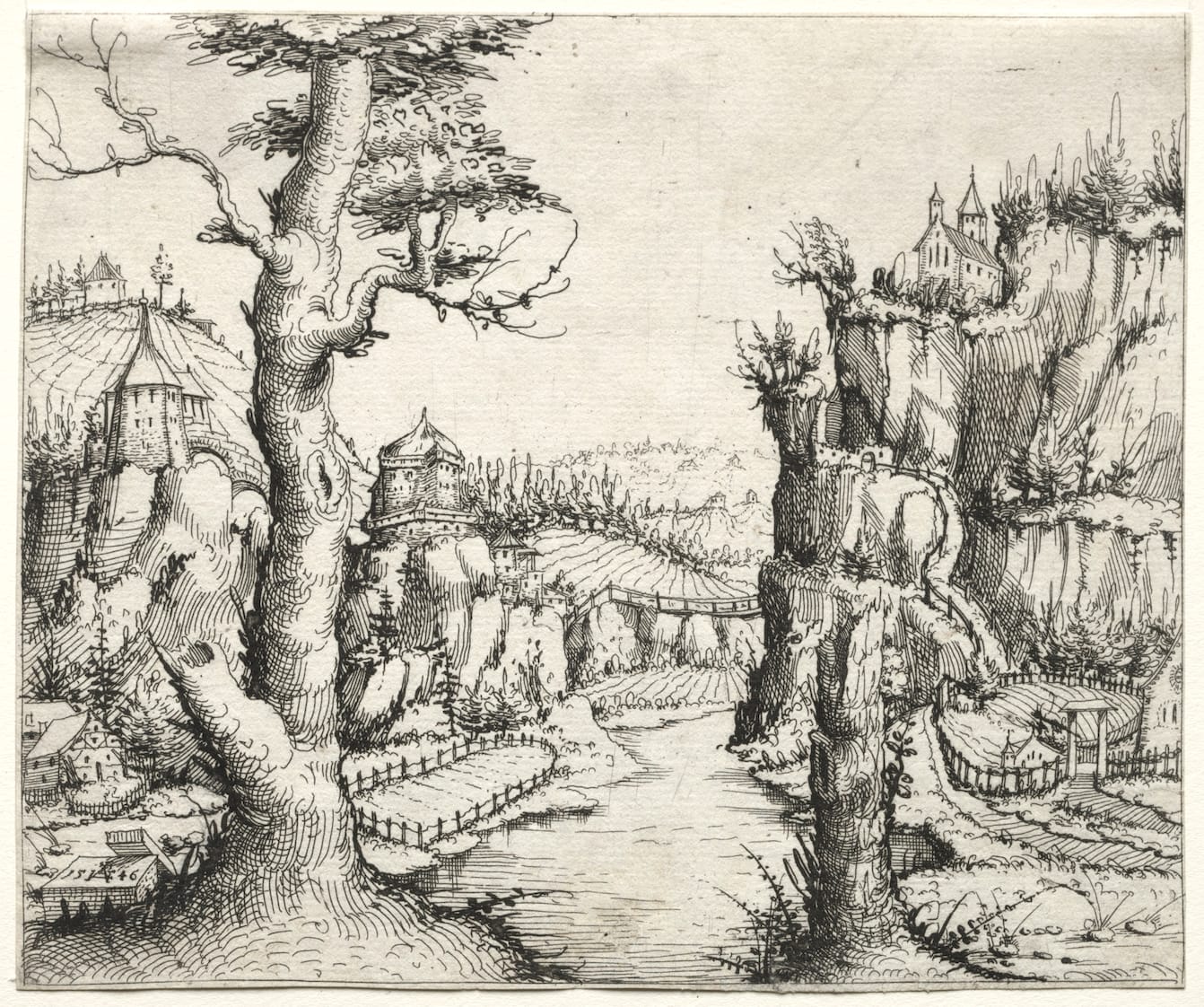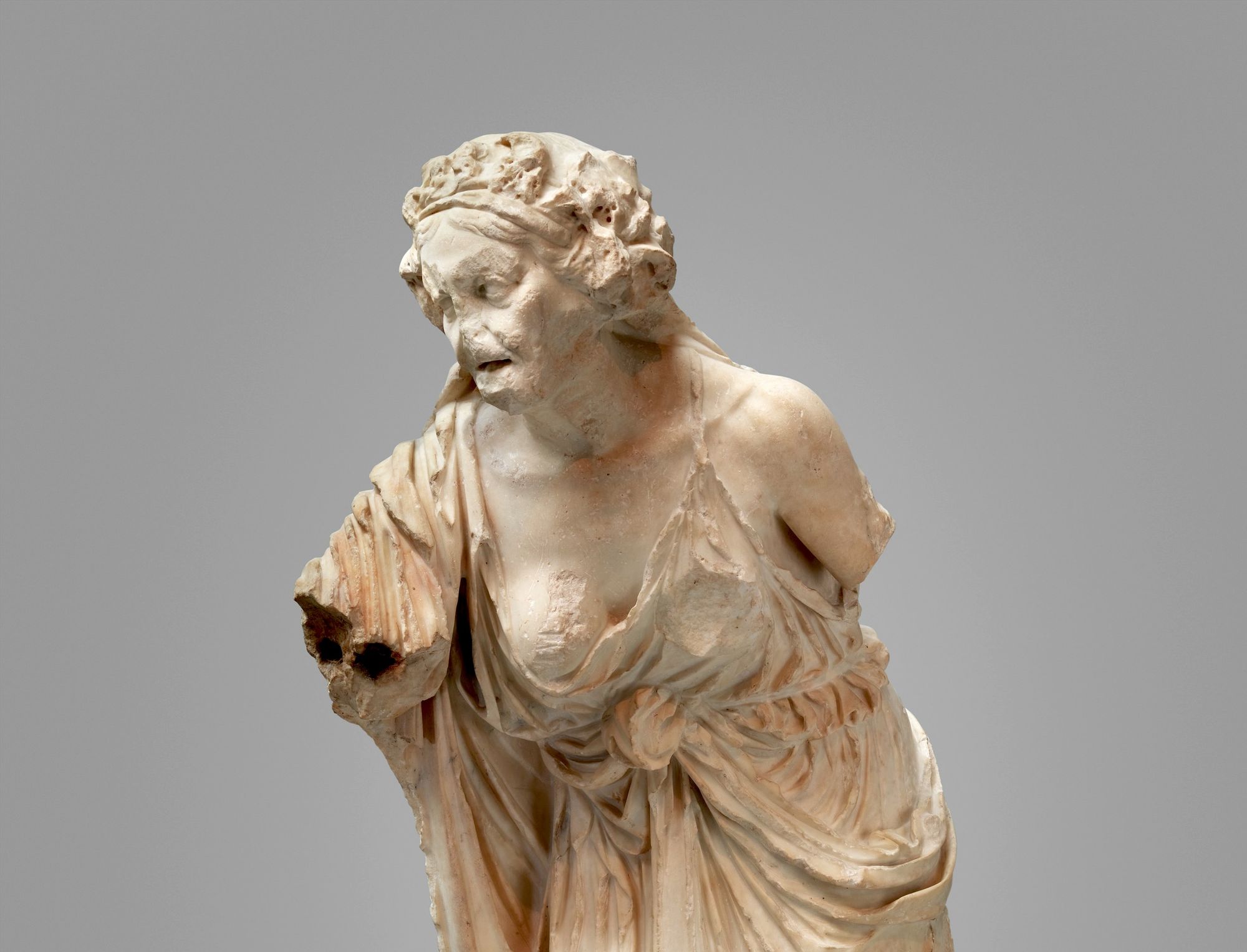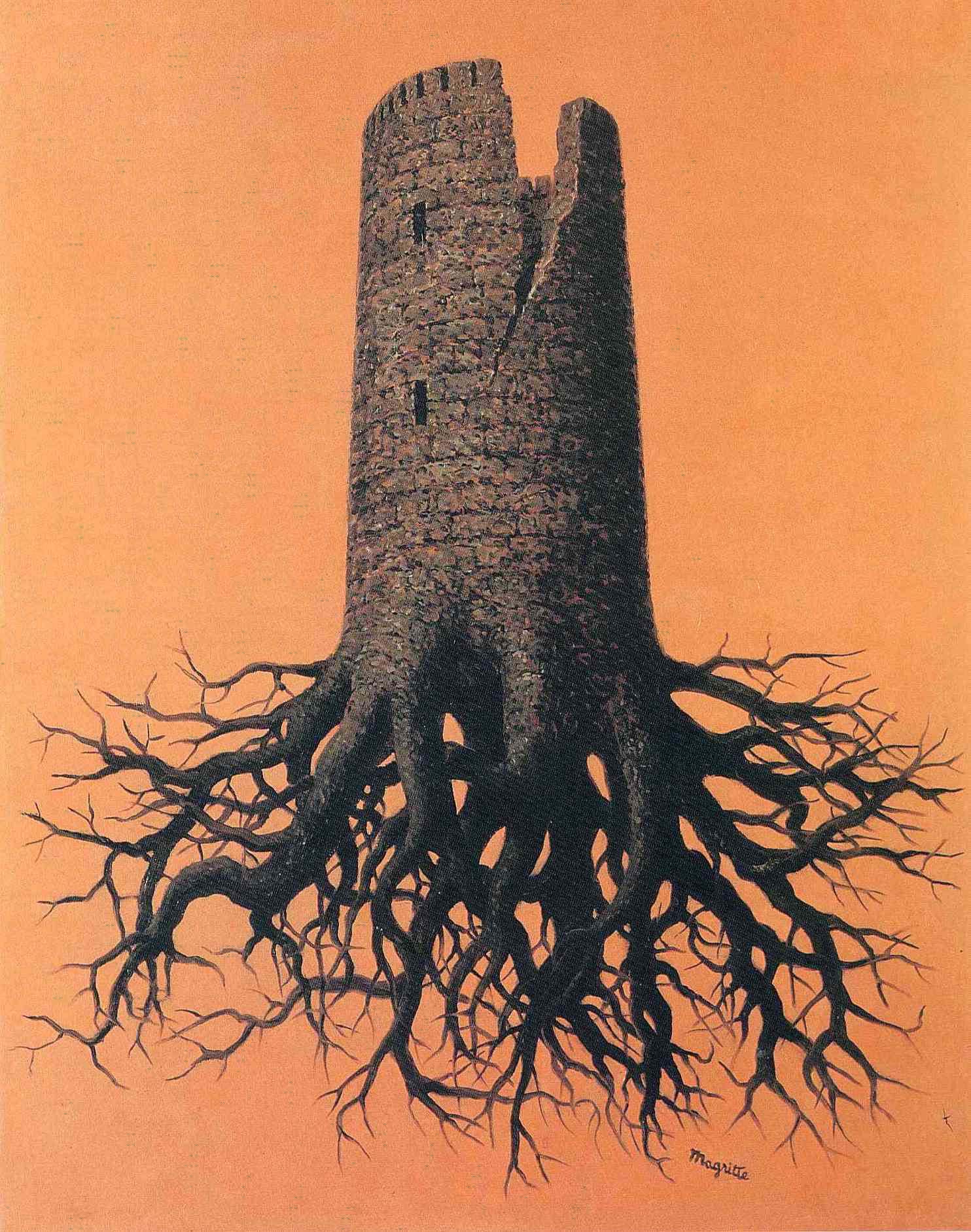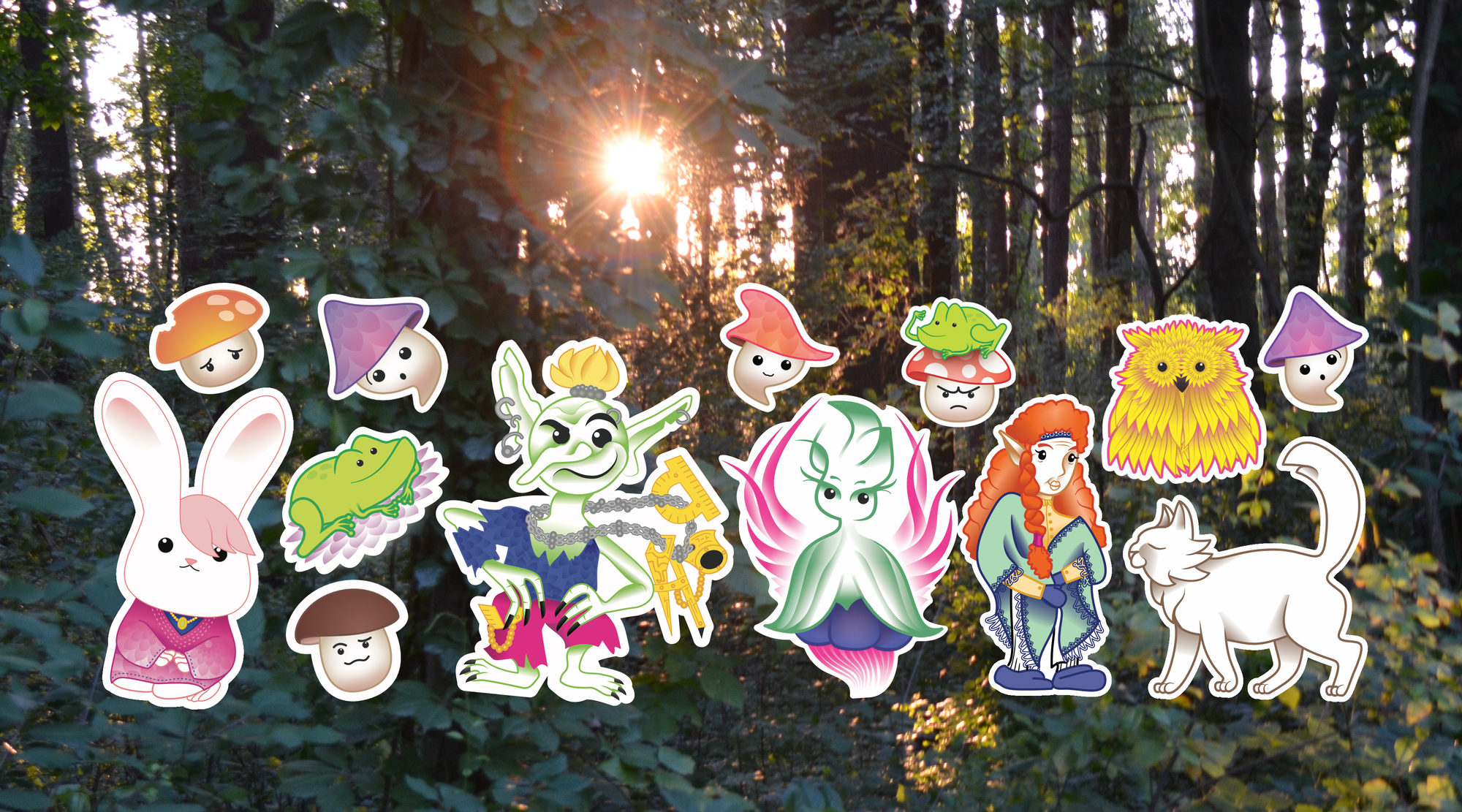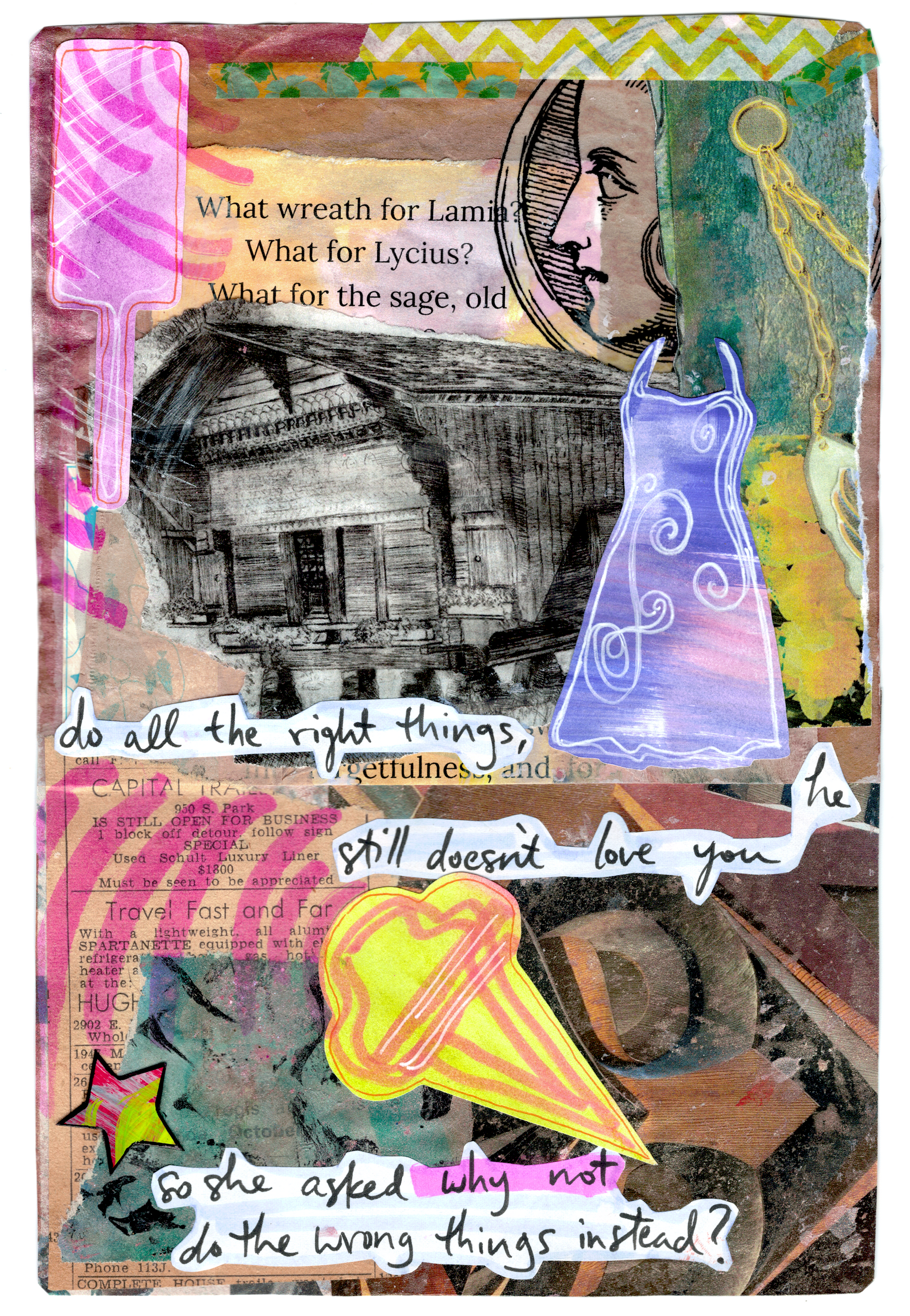The following story is a CC0-licensed contribution to my "open-source fiction" project Wanderverse, commissioned from Matthew McDowell-Sweet.
Today we pick up from the end "Elka's Welcome", the previous installment in this series (which started with "Tale of the Tinker and the Tinker's Tale").
The tinker's anger abandoned him and he remained sat on the ground, feeling the cool damp of the forest road leech into his body. He thought of Elkatron, somewhere below him. He thought of her lost sons, of her missed husband. And he thought of the long task given him — one thing for each of them.
- The husband's, the father's, was the easiest to find — the tinker found it at the first town he visited after encountering Elkatron. A tiny item tucked away on an in-demand toymaker's market stall.
- It was a music box. Palm-sized, simple, weathered but well cared for, nothing like the gold-inlaid, precious-metalled music boxes that the rich had stopped bestowing on their toddlers a decade ago. It was of a light tone and a quiet, efficient construction. Unclasping the lid and pulling it up revealed the music mechanism, as well as a neatly suspended chicane handle of basic metal. The annotated cylinder and the metal fingers that plucked its nodes were of the same peasant metal. The box played a tune the tinker didn't recognize.
- The toymaker named his price: a good story. The tinker countered: a great story and the source of the tune. Price agreed, the tinker shared the story of a traveling tinker who fell through the earth, met a weeping queen, was tasked with retrieving items for each of her six lost men, and how the first item would be a music box from a toymaker's stall.
- The toymaker laughed, handed over the music box, and shared the source of its song: it intoned the meter of a classic litany from the most famous of epics from the most widespread of faiths. This was no child's music box; it was a gift for the devout. Elkatron's husband, competent, compassionate and tireless farmer that he was, took his faith seriously — but not so seriously that he could not endure Elka's teasing. This music box, were Elka have given it to him, would have drawn a scowl upon reception, and a smile as it played.
- Finding something for each of the twins was harder. Like so many binaries of existence, Elkatron's twins were both opposed and aligned, the same but so different. Both were fiercely independent, yet unfailingly loyal, equally capable but in different domains. The tinker sought somethings akin to their confounding natures. He found them in a smithy on the outskirts of a decaying metropolis some weeks later.
- The tinker, a lifetime trader of narratives as well as material things, visited the smithy several times during his city lingering, patiently drawing out the insipid, unofficial history of a city ravaged by war, abandoned by capital and left in the care of its faithful citizens and reluctant governors.
- The smithy obliged the stereotypes. A broad man, strong and solid. His heating, folding and cooling shaped him as much as the material of his work and he spoke with reticence. Once a manufacturer shoveling arms into the maw of military conflict, the smithy traded now in bespoke pieces both grand and mundane.
- On one of his last visits, the tinker, in a bid to tease out some subtle insight about the city's arc, spoke of his futile search for twin objects. The smithy grew warmer, became interested, quizzed the tinker about the character of the twins, about their lives and their inclinations. The tinker, fluent in the totality of Elkatron's experience, withheld nought. The twin's stories told, the smithy instructed the tinker to return in three days, and to bring a bottle and an animal joint appropriate to the completion of this part of the tinker's quest. The tinker obliged, returning three days later, in the evening, with a boar's shoulder and a bottle of infamously potent, famously cherished street spirit.
- The tinker had described the nature-inclined dispositions of the twins. Whilst their father favored a fixed farmstead, the twins preferred transience and roaming excursions. One favoured earth, the other water, forests versus coasts, undergrowth versus riverbanks, hunting versus fishing. So the tinker wasn't surprised when the smithy presented him, post-boar and mid-bottle, with two knifes.
- The first was a short, fat knife, honed for the tasks of filleting and boning. Unlike the needle-like knifes appropriate to the delicate filets and sensitivities of careful chefs, this was a fisherman's tool. Its heft could endure the impact of decapitating fish heads and severing cuts from the spine, whilst being sharp enough to prepare the meat for wild cooking. It was a practical blade, not a cultured one.
- The second knife was designed to kill boars in close combat, when a bow and arrow proved ineffectual or was kept stowed in search of a wild duel. It was sharp enough to puncture boar skin, muscle and organs, long enough to reach a boar's heart, and thick enough to resist the lateral forces applied as a boar raged and thrashed.
- Both rested in simple leather sheaths. Both blades were of a dark dull metal. Both blades bore the beginnings of a flowing patina. Both had runic engravings upon their oaken hilts. As the tinker stumbled away for the night, he begged the smithy one more time to reveal the meaning of the unfamiliar runes. The smithy shook his head and cautioned against the revelation of sacred blessings, lest they become curses; the tinker stowed the twin knifes at the bottom of his pack, alongside the music box, and departed into the light of the city's night.
- The tinker wandered on for days and weeks. He talked, he traded, he traveled — the weeks progressed into months and the months approached years. Elkatron's sorrow stayed sharp in his mind, always there and never soothed. The tear scar on his finger grew darker, more defined, deeper. A black mark on his skin that seemed a portal to the depth of the tinker's soul. At night — every night — on the precipice between the worlds, the tinker watched it, stared into it. At night, it was sorrow — his, Elkatron's, the world's? — that stroked his cheek as he fell asleep.
- Months passed and the nights became torture. What began as an acute sadness that one can slip into sleep and escape became a totalitarian sorrow from which sleep or its opposite offered no relief.
- Years passed. The tinker looked everywhere, played all his favors. Nothing he found was right for the any of the fever-struck trio of sons, individually or collectively. There were close calls, moments where the tinker thought he'd found the right things. Moments where he sampled relief. But upon their purchase, upon his holding them in his hand, he knew they were wrong, insufficient.
- As the tinker wondered, so he aged, walking further down the variegated roads of existence, his quest keeping his thoughts spry whilst his wandering wore down the tissue of his body. It had been decades.
- The tinker grew exhausted. Sleeplessness is a simple, profound torture and he decided that he couldn't bear it anymore. On the approach to a small settlement — an auspicious rock that became a waystone that grew a shrine that developed into a temple that housed a village that gathered a town about itself — the tinker acquiesced. He surrendered. The tinker entered the settlement as an old man unable to find peace; the people embraced him as such, granting him the long-unused lodgings of an apprentice in the priesthood.
- The tinker's first night in the apprentice's room lasted an eternity, and somewhere in the midst of that eternity, the tinker rose from the bed. He wrapped himself in an attempt to trap the sparse warmth in his bones and headed to the moonlit temple. He stowed his shoes at the temple entryway, washed his hands and face at an inner gateway, and left a lock of hair at the giving bowl as penance before entering the central chamber. The tinker entered the three-sided room.
- It was a quiet space composed of simple wooden walls and floorboards. Flickering at the room's centre, in candlelight not unlike Elkatron's cavern so many nights ago, was an altar. Darkest obsidian, radiant white marble and murk grey slate united in a singular pyramid. Walking rapid circles around the pyramid was the priest that had welcomed the tinker. He was barefoot, muttering incessantly, gesturing wildly with his arms, and his eyes were closed.
- The tinker stepped inwards, towards the pyramid and towards the priest, who commanded him — eyes still shut, not breaking his stride — in a shrill tone to remain exactly where he was. The tinker stayed and the priest kept walking blind circles, muttering words and waving his arms. For a minute or two, the tinker watched, amused. After ten minutes, the tinker grew impatient but felt unable to depart with grace. After half an hour, the tinker wished he'd stayed and endured the torture of his sleeplessness.
- The priest yelped and the tinker exited his annoyed reverie. The priest was wide eyed now, cursing loudly, hopping on one foot whilst holding and massaging a toe on the other, dirt-stained bare foot. He'd stubbed his toe. The tinker approached and rested a hand on the hopping priest's shoulder. The priest jabbed him the tinker in the ribs — punishment from the gods for disobeying the will of a priest in front of the altar.
- Post-jab, the priest exited the pyramid room in a huff, ordering the tinker to follow him. The tinker followed. The priest continued to his own lodgings. He yanked open a cabinet, rustled around, found the object of his search, hurrahed with pleasure, then he shuffled out of his lodgings. The tinker followed the priest back to the pyramid room — the priest splashed water on their hands and face at one portal, yanked hairs from their heads and slung them in the giving bowl at another.
- The priest began to circle the obsidian-marble-slate pyramid once more, this time with a modicum of reverence, controlled gestures, subtle words and open eyes. The priest held one hand to his breast, and with the other he touched each different coloured face of the pyramid as he passed it. For one minute, two, ten, the tinker watched. Abruptly the priest stopped, smiling like a messenger boy who's crossed a continent and reached his intended receiver.
- The priest beckoned the tinker to approach; he did. The priest bid the tinker extend both his hands; he did. The priest informed the tinker that he expected eternal gratitude, as well as a good word in the ear of Elkatron, as recompense; the tinker agreed. The priest dropped a triskelion in the tinker's hand.
- Unlike other triskelion's of this faith the tinker had seen — had traded — this one was made from three intricate, curving, rounded carvings of stone. One part obsidian, one part white marble, one part grey slate, and united — somehow — by a golden join. Instantly, the tinker felt a flashing joy and the departure of the immense, otherworldly load upon his shoulders. Unable to control himself, the tinker wept, and wept, and wept; this was the triplet's artefact.
- The tinker thanked the priest once more and made to leave. As the tinker crossed the threshold, the priest yelped, tackled him and madly wrestled the triskelion from the tinker's grasp. Prising it from the tinker's hands, the priest stumbled towards the pyramid, putting the triskelion in the centre of his palm. As he reached the pyramid, the priest raised his triskelion-bearing palm high and slammed it down on the apex of the pyramid. The priest screamed in pain, and so did the tinker.
- The only sound then was the cloven segments of the triskelion tumbling down the pyramid's side and skidding off into the room, coming to rest in the shadows.
- The priest, wide-eyed, looked around the room, at the tinker, at his hand, skewered by the pyramid's point, and at the blood running down the three pyramid faces. Carefully, the priest lifted his hand, brought it back to his breast and exited the room, whimpering and whispering that the tinker should probably leave in the morning.
- The tinker said nothing. He stood there, in silence, watching the blood creep down the pyramid and slowly spend its momentum. In a daze, in despair, the tinker started looking for the pieces of the triskelion. He found them — obsidian, marble, slate — and brought them close to a candlelight. They were specked with blood and severed true along their golden joins. The tinker's despair dissolved. They were still — even more so now — the triplet's artifacts.
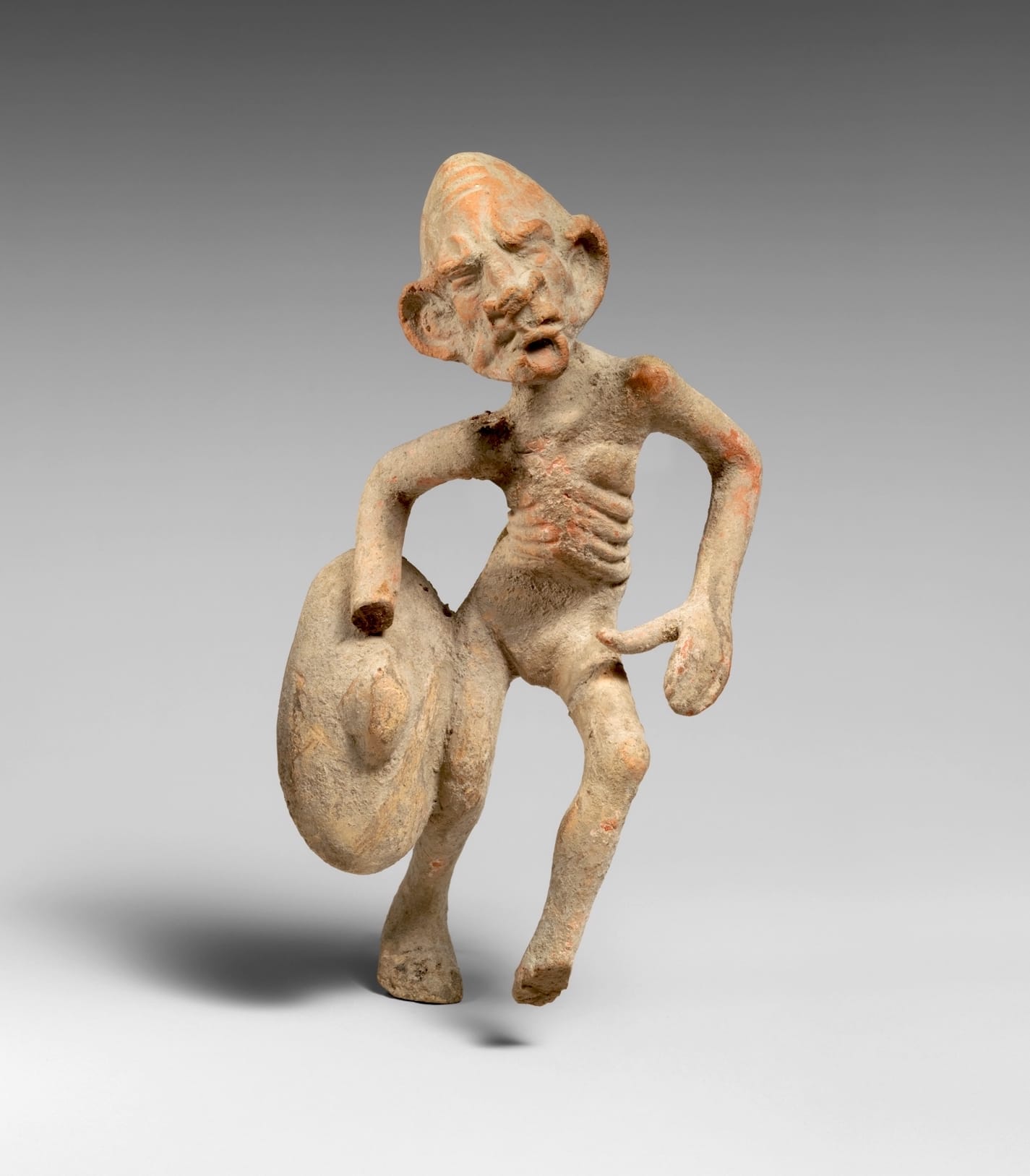
- Late the next morning, after the deepest, most blissful sleep, the tinker left the town. A few acknowledged him as he trod, pony and cart in tow, along the town's main road and back into the in-between that had occupied most of his adult life. Most, including the savior priest, had no time to spare from their everydays. The tinker didn't mind. He walked with ease, a music box, two knives and a ruptured triskelion safe in the depths of his light pack and thoughts of Elkatron soothed in the depths of his mind.
- An afternoon on the road. His path wound through the forest. The tinker passed odd people and occasional groups. He heard the rustle of nearby wildlife. He was accompanied by the dialogues of birds. Gayly, the tinker hummed a medley of long forgotten tunes, sang a few disparate verses.
- Come with me and we'll sail this ship
- to the furthest, farthest shore.
- Hear the women moaning,
- watch your father scowl.
- Now clamber to the prow,
- I'll unfurl the flag.
- This vessel scarcely feels the drag,
- she slices through the sea.
- Sail, sail with me.
- Sail, sail with me.
- The tinker halted mid-step. Silence. No birds, no wildlife, no people. Nothing. The tinker turned around. One thing. An antlered man with quizzical ears and the limbs of a powerful buck, covered in autumn fur. An antlered man gently clapping his hands and smiling.
- Like the first time they'd met the tinker half-bowed. Unlike the first-time they met, the tinker's bow had him staring into a hole in the earth. Disorientated, his recoil merely unbalanced him and sent him tumbling into it. The tinker's falling cuss masked the stag-man's apology.
- The tinker's landing, for any other aged man, would have been fatal. But as he lay crumpled, adrenaline-infused from the sudden fall, backpack twisted awkwardly about him, the tinker felt young. He untangled himself from the pack's straps and rolled to his back, looked up, saw the stag-man's inquisitive face looking down and watched the portal to the world above retreat, collapse to a pinprick and pop shut.
- He looked around. The same tunnel — left darkness and the horrifying sucking and mewling, right the flickering light. Plumule shot out of the light towards him, flew manic, celebratory loops around the tinker as he rose to his feet and donned his bag. The tinker walked into the candlelight smiling, entangled in Plumule's fey joy. The smile died when he entered the cavern and saw Elkatron once more.
- The cavern had withstood the passage of time. Elkatron had not. Previously, she'd radiated an ancient, intense, almost unfathomable despair. Previously, she'd looked like a woman. But Elkatron's sorrow had deepened, darkened and grown. It seemed sufficient to swallow existence whole and it had begun with the slow consumption of her woman-like form. The tinker had made and traded many twine-and-stick figures with the children of the villages and towns he'd visited. Elkatron bore a close resemblance to those twigs lashed together with twine.
- Plumule alighted on his shoulder. The tinker approached, dropping to his knees, bringing his bag to his shin and diving into it. Elkatron didn't see him. The tinker withdrew the music box, the two knives, and the fragmented triskelion in turn, laying them on the ground at Elkatron's feet. She didn't see him. Plumule fluttered, bouncing up and down on his shoulder.
- The tinker, daring not to speak, picked up the music box. He opened its lid. He withdrew the nestled handle and inserted it into the box's side. He looked up at Elkatron. She didn't see him. The tinker closed his eyes and turned the handle. The twink of the box's music played for a few moments before Plumule's soft voice began to sing:
- Wicker winding, basket tight
- Mother's work in lantern light
- Youth sets out with bread and eggs
- Blessings on his long strong legs
- Walk the road without an end
- Mother prays him back again
- The tinker ceased turning the music box's handle. Plumule's voice faded. The tinker opened his eyes. Elkatron saw the tinker, saw Plumule, smiled.
- The tinker handed her each of the artifacts in turn. The music box, the fisherman's knife, the hunter's knife, the marble, the obsidian, the slate. Elkatron took each delicately, touched them and turned them and examined them like they were the rarest, most precious jewels within the realm.
- With the lost men's artifacts pooled in her lap, Elkatron's smile faltered. Tears — mundane and human — began to race down her withered cheeks. The tinker moved beside Elkatron, placed one hand on her shoulder and with the other wiped Elkatron's tears away. Elkatron wept and wept but soon gathered herself with a deep breath.
- The lost men's artifacts rose from Elkatron's lap, resting in the air. Elkatron rose. She walked to the cavern wall behind the throne, the artifacts following in her wake. As Elkatron reached the wall an alcove formed from the stone. In it, she placed the music box. Elkatron circuited the cavern, placing each artifact in turn in its own newly formed alcove. She returned to her seat but did not sit.
- She faced the tinker. She thanked him for helping her find some solace and she thanked him for all his journeying, his to-ing and fro-ing, his twisting and turning about the world. And she asked him if he'd like a companion on his continued wandering. The tinker looked at Elkatron, around the cavern, at the artifacts in the alcoves, at Plumule.
- "A visitor, perhaps", said the tinker.
- Elkatron nodded. The tinker was lurched upward, grabbed again by the scruff of his coat. He yelped and found himself sitting on a damp stone throne in a small clearing, enclosed by towering hedges. The sun struggled in over the green walls and was blotted from the tinker's face by an antlered, furred figure.
- "If you lose me, bear left," said the stag-man before turning and trotting out of the enclosure and into the labyrinth. The tinker scrambled after him.
- The tinker did lose the stag-man. And the stag-man spoke truth: the first left he took — and every one after that — led the tinker straight to a mean, hungry old bear.
- The tinker soon escaped the labyrinth and continued to wander, a tear on his finger and serenity in his heart.
